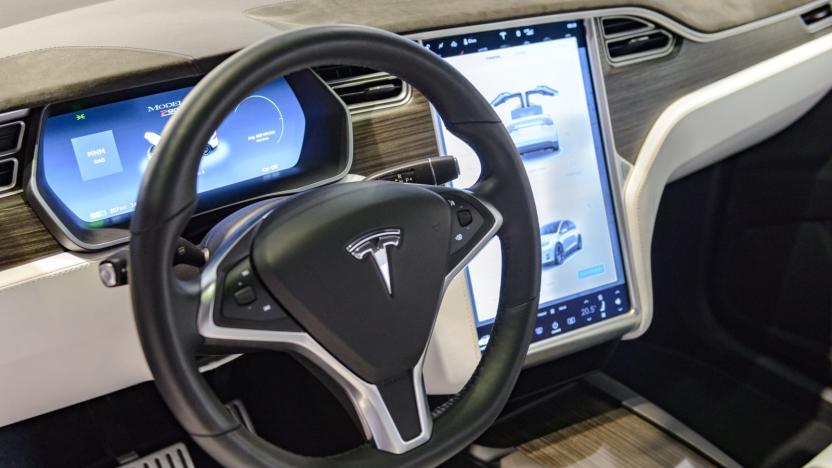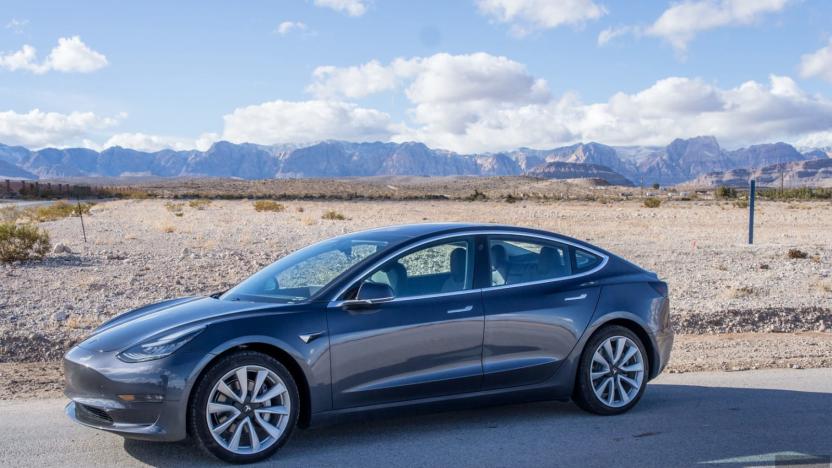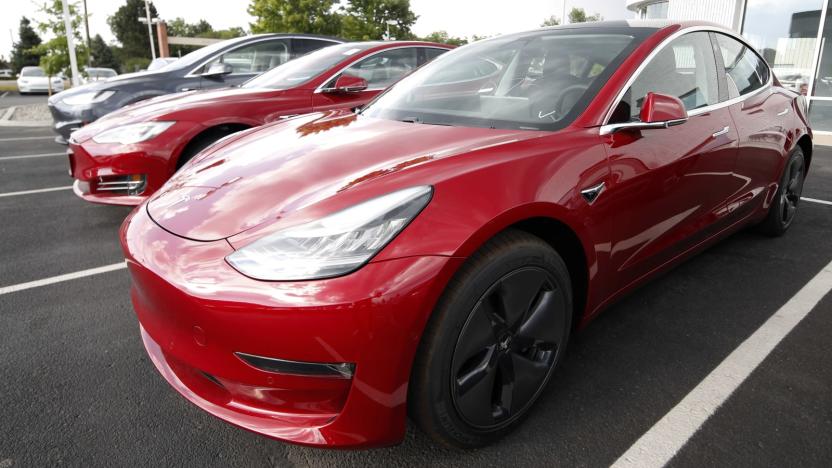National Transportation Safety Board
Latest

Driver in fatal Tesla crash had reported problems with Autopilot
The Apple engineer killed in the fatal Tesla crash in Mountain View, California, in March 2018 had reported problems with the Autopilot driver-assistance system, Reuters says. On prior trips, the driver, Walter Huang aka Wei Lun Huang, reported that the car steered away from the highway, according to National Transportation Safety Board (NTSB) documents shared Tuesday.
Christine Fisher02.11.2020
NTSB says Tesla Autopilot was partly to blame for 2018 crash
The National Transportation Safety Board (NTSB) cited both driver error and Tesla's Autopilot design as the probable causes of a January 2018 crash, in which a Model S slammed into a parked fire truck at about 31 mph. According to the report, the driver was distracted and did not see the fire truck. But NTSB says that Tesla's Autopilot was also at fault, as its design "permitted the driver to disengage from the driving task."
Christine Fisher09.05.2019
NTSB says Tesla's Autopilot was active during fatal Model 3 crash
The National Transportation Safety Board said in a preliminary report that Tesla's Autopilot system was active at the time of a fatal Model 3 crash in Delray Beach, Florida. Data showed the car's driver, who died in the March 1st incident, activated Autopilot around 10 seconds before the collision. In the approximately eight seconds before the Tesla crashed into a semi truck, the car didn't detect the driver's hands on the wheel.
Kris Holt05.16.2019
Following the TSA's lead, the NTSB drops Blackberry for iPhone
According to a report in the Wall Street Journal, the National Transportation Safety Board, or NTSB, may join the growing number of government agencies that plan to ditch the BlackBerry in favor of the iPhone. A notice posted on the Federal Business Opportunities website announces that the NTSB is working with Verizon Wireless to supply iPhone 5 handsets to the agency. In a PDF justification for the "sole source" declaration regarding Verizon and the iPhone 5, the NTSB says that the agency "requires effective, reliable and stable communication capabilities to carry out its primary investigative mission and to ensure employee safety in remote locations." The agency pointed out that BlackBerry handsets "have been failing both at inopportune times and at an unacceptable rate." The NTSB noted that iPhones are the best solution going forward as they are compatible with the agency's fleet of iPads and can be supported by the existing IT and messaging infrastructure in place there. The NTSB is getting a substantial discount on the iPhone 5 handsets in consideration of the expenditures already incurred to buy BlackBerry units from the carrier. This isn't the first government group to drop the BlackBerry. Earlier this year, the Defense Department announced it was accepting proposals for an iOS or Android-based software security system for mobile devices. This contract could eventually support up to 8 million devices, says a report in USA Today. The Immigration and Customs Enforcement confirmed in September that it would switch its 17,676 mobile users to the iPhone because the BlackBerry could "no longer meet the mobile technology needs of the agency"; the Bureau of Alcohol, Tobacco and Firearms made a similar move earlier in 2012. The Transportation Security Administration also announced in May that it would drop both BlackBerry and Windows mobile devices and replace them with Apple products in a deal worth $3 million. Despite these setbacks, beleaguered RIM says it still has "1 million government customers in North America alone who depend on BlackBerry, and more than 400,000 government customers worldwide upgraded their devices in the past year." [Via WSJ and USA Today]
Kelly Hodgkins11.21.2012
Auto-insurance researchers: 'Cell phone bans don't help reduce crashes'
All those fancy in-car docks and voice navigation? Utterly pointless. At least according to the Insurance Institute for Highway Safety, who reckons that it's not the phone that's the issue, but "the full spectrum of things that distract." The IIHS (funded by a group of car insurers) compared crash data between states that had instituted cell phone bans and those that hadn't. According to its research, while the ban had reduced phone use (whoa, really?), it hadn't helped reduce crash rates. The National Transportation Safety Board has presented several studies linking cell phone use to an increased chance of crashing and their latest proposals would ban most hands-free systems found in major car makers' vehicles today. Hear that? That was the sound of hundreds of third-party accessory manufacturers recoiling in horror.
Mat Smith12.19.2011